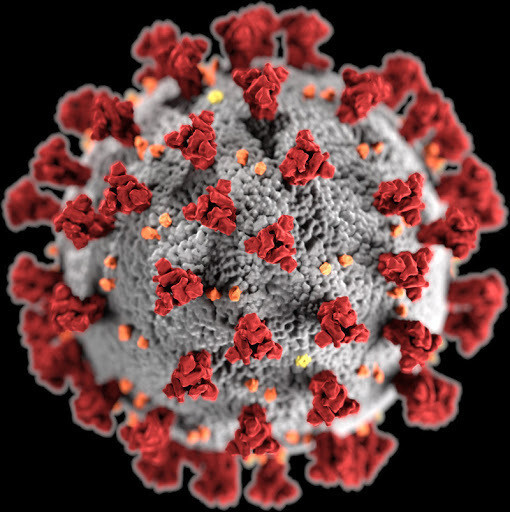hankyoreh
Links to other country sites 다른 나라 사이트 링크
Chances of novel coronavirus infection through blood, urine or feces very low, KCDC says

The likelihood of the novel coronavirus being transmitted through blood, urine, or feces is very low, the Korea Centers for Disease Control and Prevention (KCDC) said on Apr. 16. The possibility of transmission had been raised after the virus was detected in patients’ blood and feces, but the KCDC dismissed it, explaining that “experimental findings show that the likelihood of it being spread through non-respiratory pathways is very low.”
The KCDC announced findings that day from an experiment conducted on 669 samples of blood, urine, and feces taken from 74 patients diagnosed with the virus. Viral genetic material was detected in 24 of the 669 samples, but a culture test showed no instances where the virus was isolated. Explaining the possible reasons for the failure to culture the virus, the center said, “The inability to culture it suggests there’s a possibility the virus is only present in very small quantities, or what was detected may have been genetic fragments of virus that had already died and lost its infectivity.” The KCDC plans to publish a research report to share the findings of its experiment and assessment domestically and internationally.
The KCDC has also been assessing infectivity in cases of coronavirus reactivations in patients who pronounced recovered, which have recently been drawing attention. As of Apr. 16, a total of 141 cases had been reported of patients testing positive again after being released from quarantine following a complete recovery from the virus.
“These reactivation cases were not observed at the time of SARS [the Severe Acute Respiratory Syndrome outbreak] or MERS [the Middle East Respiratory Syndrome outbreak],” said KCDC Deputy Director Kwon Jun-wook. “This [coronavirus] is a pretty shrewd virus.”
At the same time, he noted, “It was observed that the virus was not isolated or cultured in the reactivation cases involving a 16-month-old patient and their parents in Gimpo, Gyeonggi Province.”
“In the other cases as well, the reason [for the reactivations] may have been that non-infective virus fragments were detected by the real-time polymerase chain reaction (RT-PCR) approach, which boasts outstanding performance capabilities,” he said, suggesting that the reactivation cases are likely to not pose a risk of infection to others.
By Choi Ha-yan, staff reporter
Please direct comments or questions to [english@hani.co.kr]

Editorial・opinion
![[Editorial] Yoon must halt procurement of SM-3 interceptor missiles [Editorial] Yoon must halt procurement of SM-3 interceptor missiles](https://flexible.img.hani.co.kr/flexible/normal/500/300/imgdb/child/2024/0501/17145495551605_1717145495195344.jpg) [Editorial] Yoon must halt procurement of SM-3 interceptor missiles
[Editorial] Yoon must halt procurement of SM-3 interceptor missiles![[Guest essay] Maybe Korea’s rapid population decline is an opportunity, not a crisis [Guest essay] Maybe Korea’s rapid population decline is an opportunity, not a crisis](https://flexible.img.hani.co.kr/flexible/normal/500/300/imgdb/original/2024/0430/9417144634983596.jpg) [Guest essay] Maybe Korea’s rapid population decline is an opportunity, not a crisis
[Guest essay] Maybe Korea’s rapid population decline is an opportunity, not a crisis- [Column] Can Yoon steer diplomacy with Russia, China back on track?
- [Column] Season 2 of special prosecutor probe may be coming to Korea soon
- [Column] Park Geun-hye déjà vu in Yoon Suk-yeol
- [Editorial] New weight of N. Korea’s nuclear threats makes dialogue all the more urgent
- [Guest essay] The real reason Korea’s new right wants to dub Rhee a founding father
- [Column] ‘Choson’: Is it time we start referring to N. Korea in its own terms?
- [Editorial] Japan’s rewriting of history with Korea has gone too far
- [Column] The president’s questionable capacity for dialogue
Most viewed articles
- 1Months and months of overdue wages are pushing migrant workers in Korea into debt
- 2At heart of West’s handwringing over Chinese ‘overcapacity,’ a battle to lead key future industries
- 3[Editorial] Yoon must halt procurement of SM-3 interceptor missiles
- 4Trump asks why US would defend Korea, hints at hiking Seoul’s defense cost burden
- 5Under conservative chief, Korea’s TRC brands teenage wartime massacre victims as traitors
- 6Fruitless Yoon-Lee summit inflames partisan tensions in Korea
- 7[Guest essay] Maybe Korea’s rapid population decline is an opportunity, not a crisis
- 8[Column] For K-pop idols, is all love forbidden love?
- 9[Editorial] 10 years on, lessons of Sewol tragedy must never be forgotten
- 10[Editorial] When the choice is kids or career, Korea will never overcome birth rate woes